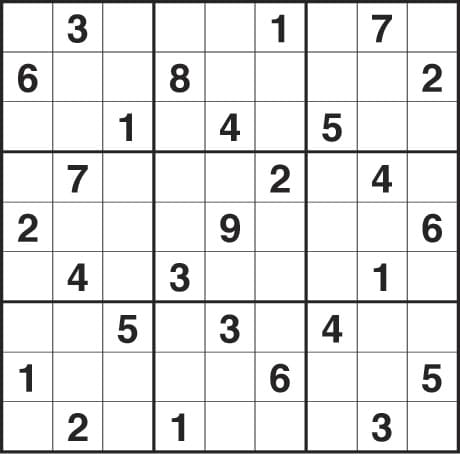If You Knew Sudoku Like I Knew Sudoku: an essay in odds and possibilities by: GF Willmetts (article).
According to the Encyclopaedia Britannica, there are 6,670,903,752,021,072,936,960 possible 12*12 Sudoku grids. A question came up but I never saw answered with them was how many options there were per square and then per row or column.

This isn’t as easy as it might appear as it is based off factorial number possibilities. With a different number in each square, then each square would be factorial 9 (often this would be written 9!) for each square. As such, assuming the row had no numbers, factorial 9 is 9*8*7*6*5*4*3*2*1 = 362880 possibilities for the first square. Once that number is established, then it would be one number less for next empty square, making factorial 8 and so forth. Based off of this, for an entire empty row or column you would have the astronomical number of 1.83493 * 1021 – which is a lot of zeroes. Yet people can still solve them against such odds.
However, in most games of Sudoku there are numbers in any row, which reduces the number of factorials for the row and so there is no precise number. If, say, three numbers are shown, then the factorials start off much lower. These are still high odds but as you determine each number, the odds are reduced. This is why when you get down to the last few squares, you can solve them a lot faster.
Sudoku is based off logic and providing that whether the choice of numbers or letters, the odds will always reduce providing you fill the squares in correctly. Is there any clue to getting them done any faster? Beats me. I don’t always get them done correctly myself. Oddly, I’ve found that I can work them out faster if I’m standing up or doing something else at the same time. If you find yourself getting stuck, take a few minutes away from it and come back. A rested eye will suddenly makes sense of the squares and find the right numbers.
© GF Willmetts 2013
